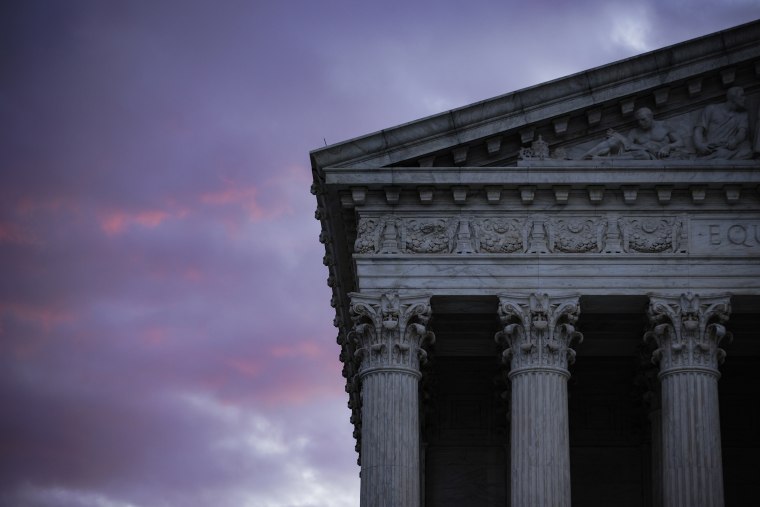Democrats on the Senate Judiciary Committee announced plans Monday to seek subpoenas for three influential conservatives who have been a key focus of the panel's investigation into Supreme Court ethics.
In a joint statement, Committee Chairman Dick Durbin of Illinois and Sen. Sheldon Whitehouse, D-R.I., who chairs the panel’s subcommittee on federal courts and oversight, said previous inquiries the panel sent to GOP donors Harlan Crow and Robin Arkley II, as well as judicial activist Leonard Leo, were "critical" to their work following a series of news reports about conservative justices accepting gifts and trips paid for by billionaires without disclosing them. The senators said the committee had received refusals to comply or "limited information," necessitating the need for subpoenas.
“By accepting these lavish, undisclosed gifts, the justices have enabled their wealthy benefactors and other individuals with business before the Court to gain private access to the justices while preventing public scrutiny of this conduct,” Durbin and Whitehouse said. “In order to adequately address this crisis, it is imperative that we understand the full extent of how people with interests before the Court are able to use undisclosed gifts to gain private access to the justices.”
A spokesperson for the committee said the vote would most likely be scheduled for Nov. 9, adding that Republicans on the committee were likely to request a one-week delay, a customary step for the minority party.
A separate vote by the full Senate is not needed to authorize the subpoenas.
ProPublica reported in April that Justice Clarence Thomas accepted trips funded by Crow, a billionaire donor. In June, it outlet reported that Justice Samuel Alito took an undisclosed fishing trip to Alaska in 2008 with Arkley that was coordinated by Leo.
Alito defended his actions in an opinion piece, while Thomas later disclosed the trips.
In a statement Tuesday, Crow's office called the pursuit of a subpoena an "unnecessary, partisan, and politically motivated" stunt, adding that it ignored Crow’s "good faith efforts at a reasonable compromise that respects both sides."
"We offered extensive information responsive to the Committee’s requests despite the serious constitutional and privacy concerns presented to the Committee, which were ignored and remain unaddressed," the statement said. "Notably, the Committee has already passed the legislation for which it says the information it has requested is supposedly necessary."
"Mr. Crow, a private citizen, won’t be bullied by threats from politicians," it added. "However, as previously conveyed to the Committee, we remain committed to respectful cooperation and a fair resolution.”
In a statement Monday, Leo responded to the planned subpoena vote by saying he “will not bow to the vile and disgusting liberal McCarthyism that seeks to destroy the Supreme Court simply because it follows the Constitution rather than their political agenda.”
Arkley’s company did not immediately respond to requests for comment Monday night.
The vote announcement is a significant escalation by Senate Democrats in their push for the Supreme Court to adopt a code of conduct.
“The Chief Justice could fix this problem today and adopt a binding code of conduct. As long as he refuses to act, the Judiciary Committee will,” Durbin and Whitehouse said in their statement Monday.
Chief Justice John Roberts declined an invitation to testify before the committee in April.
In July, the panel advanced a bill to the full Senate that would require the high court to adopt a code of conduct and establish a mechanism to investigate any alleged violations and strengthen recusal requirements. The measure has not come to the floor for a vote.
